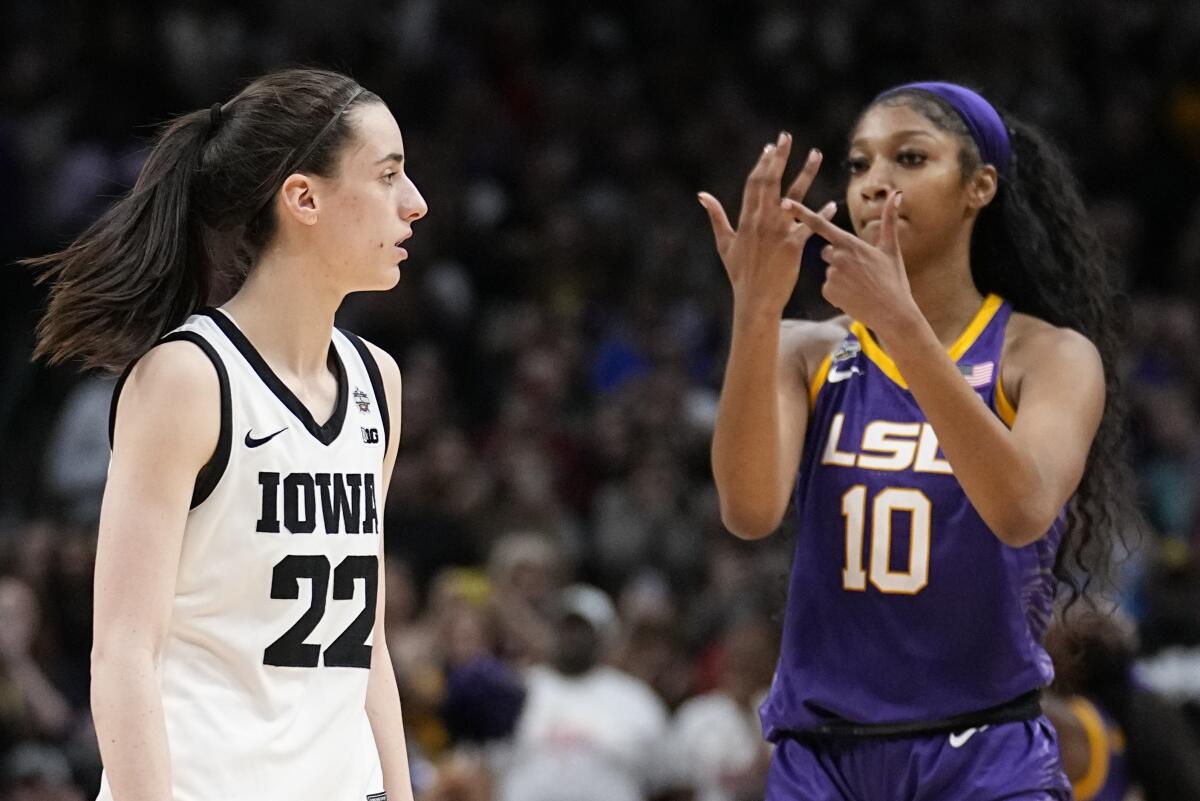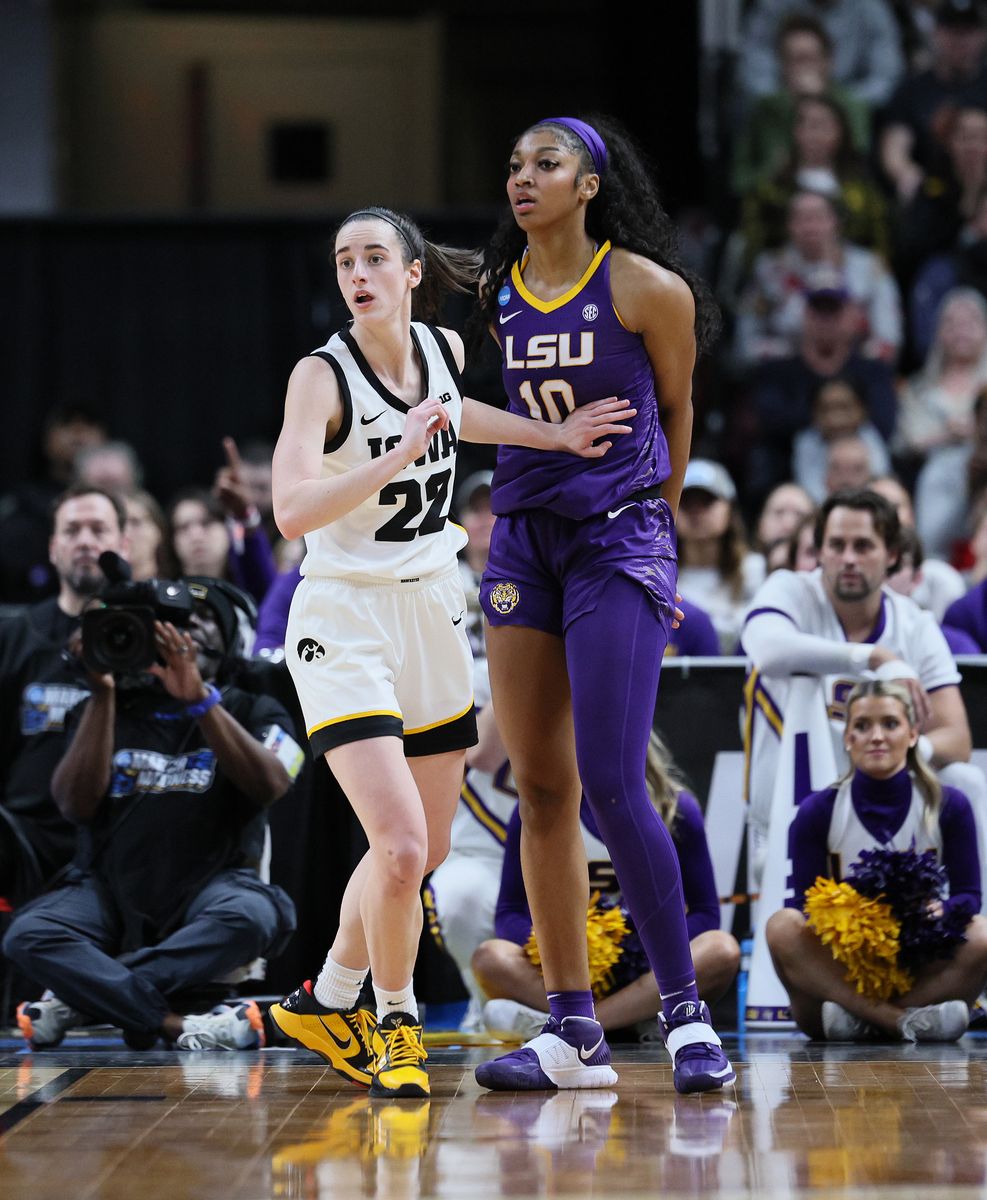Gainbridge Fieldhouse started buzzing two hours before tip-off, but by the middle of the third quarter even the popcorn vendors had time to scroll their phones—the game was that lopsided.
Indiana sprinted to a 32-14 lead in nine minutes, never looked back, and eventually coasted to a 101-76 rout so thorough the public-address announcer ran out of creative ways to describe “another Fever bucket.”
What should have been a showcase of rookie royalty—Angel Reese banging inside, Caitlin Clark bombing threes—mutated into a one-sided clinic that left the Sky’s locker room sounding like a karaoke bar at closing time: off-key, hoarse, and desperately searching for a new song.
Angel Reese’s evening began with optimism and ended under a towel. On Chicago’s first possession she spun past Aliyah Boston for a soft hook, slapped the floor in celebration, and mouthed “I’m here” toward the Fever bench.
Unfortunately, that was nearly the sum of her highlights. Boston, Temi Fagbenle, and Kristy Wallace took turns fronting her in the post, daring officials to whistle contact.
Instead of free throws, Reese collected three first-half fouls and a minus-18 plus-minus that looked like a typing error on the stat sheet. Cameras caught her muttering “can’t get a call” as she trudged to the bench, but officials shrugged; reputation points don’t cash out in a rookie season.
While Reese fumed, Indiana’s rhythm orchestra tuned up. Kelsey Mitchell launched step-backs that barely ruffled the net, Lexie Hull ghost-cut through every Sky rotation, and Caitlin Clark—returning from her concussion protocol—used the game as a passing safari. One full-court, left-handed dart threaded three defenders and hit Boston in stride like a GPS-guided missile.
The basket counted, the crowd levitated, and ESPN’s commentary booth began debating whether Clark’s assist reel should have its own zip code. By halftime she already had nine dimes and the Sky had surrendered 61 points, their worst defensive half of the season.
Desperation can galvanize teams, but Chicago’s came off more slapstick than strategic. After Teresa Weatherspoon’s locker-room sermon about “punching back,” the Sky opened the third quarter with three straight turnovers: a telegraphed entry pass, a dribble off a shoe, and a swing-through that landed two rows deep.
Reese, pressing to ignite a spark, tried euro-steps usually reserved for guards; the result was a traveling violation that sent Twitter into meme mode. One user spliced her shuffle with a cha-cha soundtrack; another overlaid Clark’s earlier “you gotta walk before you run” jab. Within minutes #EuroReese trended above a live Taylor Swift watch-party thread.
The comedic fallout wasn’t confined to cyberspace. A quartet of Fever fans in Section 116 hoisted poster boards spelling “SWEEP” every time Chicago bricked a shot.
Even Indiana’s mascot, Freddy Fever, joined the troll parade, pantomiming a slow-motion travel dance after Reese’s third turnover and earning a side-eye from Weatherspoon.
Team security intervened, but the damage was done; Chicago’s bench stared daggers at the mascot while Indiana’s sideline nearly pulled a muscle laughing. If sports karma exists, it never bothered to purchase a ticket for this game.
By night’s end Reese’s line read 8 points on 2-for-9 shooting, six rebounds, five fouls, and four turnovers—a far cry from her usual double-double. Critics piled on with gleeful abandon.
A Chicago columnist lamented that “Reese looked more influencer than enforcer,” while a national podcast quipped, “She left the big-girl pants in Baton Rouge.”
Some wondered aloud if the league’s physicality had finally caught up to her; others speculated that constant media scrutiny, the Clark comparisons, and a bulging endorsement schedule are eroding her on-court focus.
Either way, the optics were brutal: while Clark orchestrated a 20-11-12 triple-double, Reese watched from the end of the bench, arms folded, jaw clenched, and eyes fixed somewhere only she could see.
Inside the Sky locker room the mood oscillated between gallows humor and silent fury. Weatherspoon kept reporters waiting 25 minutes, presumably to let tempers cool or band-aid inflated egos.
When she finally emerged, her message was blunt: “We got bullied. No excuses.” Reese spoke softly, taking equal ownership and umbrage. “I played like trash,” she conceded before firing a warning shot: “Remember that next time.
 T
T
I will.” Teammates nodded, but the resonance felt obligatory, as if everyone sensed that fiery words won’t fix spacing or reduce turnovers. Chicago’s next four games come against top-five defenses; the sledding could get uglier before smooth pavement returns.
For Indiana the upside extends beyond one blowout. Clark’s vision looks fully recalibrated, Boston appears springier than she did in May, and Hull has blossomed into a two-way menace who punishes every defensive lapse.
The Fever’s newly installed “flow motion” offense, heavy on hand-offs and ghost screens, rendered Chicago’s drop coverage obsolete by the second quarter.
Coach Christie Sides gushed afterward, “This is how we want to play—pace, space, punch.” Her players echoed the sentiment with more swagger: Mitchell joked the team should invoice Chicago for the “midseason clinic,” and Clark, when asked about the lopsided storyline, simply shrugged: “We hoop. Twitter talks.”
Still, the WNBA is a league of quick turnarounds and shorter memories. Reese’s camp insists the sky isn’t falling—pun unavoidable—citing her resilience at LSU, where she bounced back from similar lowlights to capture a national title.
They point to advanced metrics showing her defensive rebounding percentage holds up even in blowouts and note she’s only 22 with an entire career to sharpen her footwork and decision-making.
Even Celtics legend Bill Russell once said the key to greatness is “short memory, long vision.” Whether Reese subscribes to that wisdom will determine how quickly she rewrites this embarrassing chapter.
Back outside, fans migrated to the exits still buzzing, many reciting their favorite meme captions before they’d even reached their cars. But beneath the humor lies the true hook: rivalry makes everything more electric, and nothing fuels rivalry like a bit of humiliation.
Angel Reese may be “done” only in the sarcastic echo chambers of social media, yet the blowout guarantees eyeballs for the rematch, ticket sales for the league, and a narrative arc ripe for redemption.
On some night soon, maybe at Wintrust or a playoff stage, she’ll get a chance to flip the script. Until then, the Fever bask in their dominance, the Sky regroup in damage control, and everyone else scrolls through highlight reels and hashtags, laughing at the fallout while secretly hoping the next chapter is just as wild.
Perspective rarely survives the immediacy of viral culture, but it lingers for players who practice again at sunrise. Reese finished her post-game obligations, slipped on headphones, and walked into the tunnel without a limp—her pride bruised more than her body.

Clark, meanwhile, lingered courtside to sign autographs, pausing to chat with a young fan wearing a split Clark-Reese jersey. If the rivalry feels personal to outsiders, the players know it’s a cyclical dance: one week a blowout, the next a barn-burner.
The laughter fades, the memes eventually scroll off the feed, but the hoop dreams keep spinning—faster for Indiana, a bit wobbly for Chicago, and undeniably more compelling for a league that thrives whenever two magnetic stars collide, stumble, and rise again.

